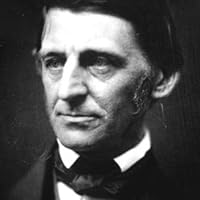Spectacle Quotes
Quotes tagged as "spectacle"
Showing 1-30 of 50
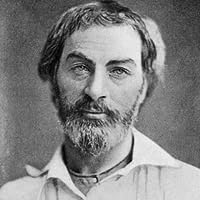
“Note, to-day, an instructive, curious spectacle and conflict. Science, (twin, in its fields, of Democracy in its)—Science, testing absolutely all thoughts, all works, has already burst well upon the world—a sun, mounting, most illuminating, most glorious—surely never again to set. But against it, deeply entrench'd, holding possession, yet remains, (not only through the churches and schools, but by imaginative literature, and unregenerate poetry,) the fossil theology of the mythic-materialistic, superstitious, untaught and credulous, fable-loving, primitive ages of humanity.”
― Complete Prose Works
― Complete Prose Works
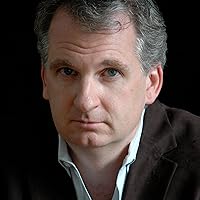
“Believe in truth. To abandon facts is to abandon freedom. If nothing is true, then no one can criticize power, because there is no basis upon which to do so. If nothing is true, then all is spectacle. The biggest wallet pays for the most blinding lights.”
―
―

“Spectacle is the sun that never sets over the empire of modern passivity”
― The Society of the Spectacle
― The Society of the Spectacle

“This society eliminates geographical distance only to produce a new internal separation.”
― The Society of the Spectacle
― The Society of the Spectacle

“The distance between Don Quixote and the petty bourgeois victim of advertising is not so great as romanticism would have us believe.”
― Deceit, Desire and the Novel: Self and Other in Literary Structure
― Deceit, Desire and the Novel: Self and Other in Literary Structure

“Glory is largely a theatrical concept. There is no striving for glory without a vivid awareness of an audience... The desire to escape or camouflage their unsatisfactory selves develops in the frustrated a facility for pretending -- for making a show -- and also a readiness to identify themselves wholly with an imposing spectacle.”
― The True Believer: Thoughts on the Nature of Mass Movements
― The True Believer: Thoughts on the Nature of Mass Movements

“Unfortunately they failed to appreciate the best part of you, preferring to lose themselves in the labyrinth of your grosser illusions. Didn't I show our well-behaved audience an angelized version of you? And you saw their reaction. They were bored and just sat in their seats like a bunch of stiffs. Of course, what can you expect? They wanted the death stuff, the pain stuff. All that flashy junk. They wanted cartwheels of agonized passion; somersaults into fires of doom; nosedives, if you will, into the frenzied pageant of vulnerable flesh. They wanted a tangible thrill.
("Drink To Me Only With Labyrinthine Eyes")”
― The Nightmare Factory
("Drink To Me Only With Labyrinthine Eyes")”
― The Nightmare Factory
“The status of celebrity offers the promise of being showered with ‘all good things’ that capitalism has to offer. The grotesque display of celebrity lives (and deaths) is the contemporary form of the cult of personality; those ‘famous for being famous’ hold out the spectacular promise of the complete erosion of a autonomously lived life in return for an apotheosis as an image.
- From Martin Jenkins' Introduction”
― The Society of the Spectacle
- From Martin Jenkins' Introduction”
― The Society of the Spectacle
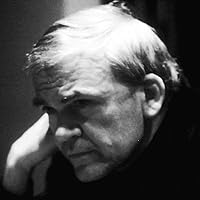
“What does it mean to demonstrate in the streets, what is the significance of that collective activity so symptomatic of the twentieth century? In stupefaction Ulrich watches the demonstrators from the window; as they reach the foot of the palace, their faces turn up, turn furious, the men brandish their walking sticks, but “a few steps farther, at a bend where the demonstration seemed to scatter into the wings, most of them were already dropping their greasepaint: it would be absurd to keep up the menacing looks where there were no more spectators.” In the light of that metaphor, the demonstrators are not men in a rage; they are actors performing rage! As soon as the performance is over they are quick to drop their greasepaint! Later, in the 1960s, philosophers would talk about the modern world in which everything had turned into spectacle: demonstrations, wars, and even love; through this “quick and sagacious penetration” (Fielding), Musil had already long ago discerned the “society of spectacle.”
― The Curtain: An Essay in Seven Parts
― The Curtain: An Essay in Seven Parts
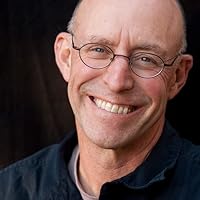
“Each spring for a period of weeks the imperial gardens were filled with prize tulips (Turkish, Dutch, Iranian), all of them shown to their best advantage. Tulips whose petals had flexed wide were held shut with fine threads hand-tied. Most of the bulbs had been grown in place, but these were supplemented by thousands of cut stems held in glass bottles; the scale of the display was further compounded by mirrors placed strategically around the garden. Each variety was marked with a label made from silver filigree. In place of every fourth flower a candle, its wick trimmed to tulip height, was set into the ground. Songbirds in gilded cages supplied the music, and hundreds of giant tortoises carrying candles on their backs lumbered through the gardens, further illuminating the display. All the guests were required to dress in colors that flattered those of the tulips. At the appointed moment a cannon sounded, the doors to the harem were flung open, and the sultan's mistresses stepped into the garden led by eunuchs bearing torches. The whole scene was repeated every night for as long as the tulips were in bloom, for as long as Sultan Ahmed managed to cling to his throne.”
― The Botany of Desire: A Plant's-Eye View of the World
― The Botany of Desire: A Plant's-Eye View of the World

“Suppose every photo of me ever taken was an infinitesimal piece? Every magazine ad, every negative, every frame of motion picture film - another tiny molecule of me, stolen away to feed an audience that is *never* satiated. And when someone is fully consumed - vampirized - they move on, still hungry, to pick their next victim by making him or her a star. That's why they're called consumers. ("Red Light")”
― Seeing Red
― Seeing Red
“People are obsessed with spectacle. We live in the society of the spectacle. People are addicted to the spectacular. They want bigger and better spectacles. They need more and more to keep them stimulated. They crave entertainment. They crave more powerful simulations, more breathtaking special effects, more everything. No one wants POR – plain old reality. Simulation – hyperreality – the simulacrum – these are what the people desire. We all live in Disneyland now – an utter fantasy world. Our true God is Mickey Mouse. At least he’s a lot nicer than Yahweh.”
― Hypersex
― Hypersex
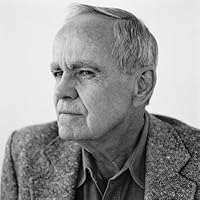
“The horrors of the past lose their edge, and in the doing they blind us to a world careening toward a darkness beyond the bitterest speculation. It's sure to be interesting. When the onset of universal night is finally acknowledged as irreversible even the coldest cynic will be astonished at the celerity with which every rule and stricture shoring up this creaking edifice is abandoned and every aberrancy embraced. It should be quite a spectacle. However brief.”
― The Passenger
― The Passenger
“We live in the society of the capitalist spectacle, mate, the more spectacular the better. Build it and they will come, as that old baseball movie says. We worship the event, the occasion, the unmissable show. We want Super Sunday, the Thriller in Manila, the showdown of the century…the things that bring the highest profits for the capitalist organisers. If you’re not at the event, you’re nobody. Life has passed you by. That’s the tyranny of the spectacle. Yet, if you think about it, the spectacle is the biggest joke of all – because all the people at the event are desperate not to be losers. Who wants to be in a collection of people fleeing from fear of failure? Losers and the spectacle go together, the winners performing and the losers watching. The spectacle is how losers numb the pain, how they crave to be part of something, on the winning side for once. The LLN have decided to harness the society of the spectacle too, but not the capitalist version where small groups perform to large groups and get paid a fortune. Instead, the LLN offer the spectacle of life. And Revolution is the greatest spectacle of all.”
― The Last Bling King
― The Last Bling King

“Pirmoji ekonomikos viešpatavimo socialiniame gyve- nime fazė į bet kokios žmogaus veiklos apibrėžtį įnešė aki- vaizdų nuopuolį, nurodantį perėjimą iš būti į turėti. Dabartinė fazė, nusakanti visišką socialinio gyvenimo užgrobimą remian- tis ekonomikos pasiekimais, stumia į visuotinę kaitą nuo turėti į atrodyti, iš kurios bet koks veiksmingas „turėti“ privalo būti išreikštas visuotiniu prestižu ir aukščiausiomis pareigomis. Tuo pačiu metu bet kokia asmeninė tikrovė tampa socialine, tiesiogiai priklausančia nuo visuomeninės valdžios, kurią ji ir suformavo. Vien dėl to, kad jos nėra, jai leista pasirodyti.”
― The Society of the Spectacle
― The Society of the Spectacle
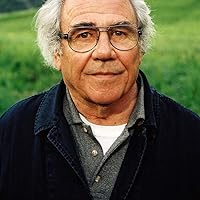
“In this impossibility of reapprehending the world through images and of moving from information to a collective action and will, in this absence of sensibility and mobilization, it isn't apathy or general indifference that's at issue; it is quite simply that the umbilical cord of representation is severed.
The screen reflects nothing. It is as though you are behind a two-way mirror: you see the world, but it doesn't see you, it doesn't look at you. Now, you only see things if they are looking at you. The screen screens out any dual relation (any possibility of 'response').
It is this failure of representation which, together with a failure of action, underlies the impossibility of developing an ethics of information, an ethics of images, an ethics of the Virtual and the networks. All attempts in that direction inevitably fail.
All that remains is the mental diaspora of images and the extravagant performance of the medium.
Susan Sontag tells a good story about this pre-eminence of the medium and of images: as she is sitting in front of the television watching the moon landing, the people she is
watching with tell her they don't believe it at all. 'But what are you watching, then?' she asks. 'Oh, we're watching television!' Fantastic: they do not see the moon; they see only the screen showing the moon. They do not see the message; they see only the image.
Ultimately, contrary to what Susan Sontag thinks, only intellectuals believe in the ascendancy of meaning; 'people' believe only in the ascendancy of signs. They long ago said goodbye to reality. They have gone over, body and soul, to the spectacular.”
― The Intelligence of Evil or the Lucidity Pact
The screen reflects nothing. It is as though you are behind a two-way mirror: you see the world, but it doesn't see you, it doesn't look at you. Now, you only see things if they are looking at you. The screen screens out any dual relation (any possibility of 'response').
It is this failure of representation which, together with a failure of action, underlies the impossibility of developing an ethics of information, an ethics of images, an ethics of the Virtual and the networks. All attempts in that direction inevitably fail.
All that remains is the mental diaspora of images and the extravagant performance of the medium.
Susan Sontag tells a good story about this pre-eminence of the medium and of images: as she is sitting in front of the television watching the moon landing, the people she is
watching with tell her they don't believe it at all. 'But what are you watching, then?' she asks. 'Oh, we're watching television!' Fantastic: they do not see the moon; they see only the screen showing the moon. They do not see the message; they see only the image.
Ultimately, contrary to what Susan Sontag thinks, only intellectuals believe in the ascendancy of meaning; 'people' believe only in the ascendancy of signs. They long ago said goodbye to reality. They have gone over, body and soul, to the spectacular.”
― The Intelligence of Evil or the Lucidity Pact

“the postmodern trajectory itself is a rather humorous joke on the human race which laboured for millennia to reduce working hours in order to produce leisure so we could enjoy this very leisure that then turns in a kind of vengeful act against us absorbing our leisure time, which was to be our living time, into time now spent in the service of what can only be called this inhuman spectacle”
― The Self Under Siege: Philosophy In The Twentieth Century
― The Self Under Siege: Philosophy In The Twentieth Century

“It is the same with text, with any 'virtual' text (the Internet, word-processing): you work on it like a computer-generated image, which no longer bears any relation to the transcendence of the gaze or of writing. At any rate, as soon as you are in front of the screen, you no longer see the text as a text, but as an image. Now, it is in the strict separation of text and screen, of text and image, that writing is an activity in its own right, never an interaction.
Similarly, it is only with the strict separation of stage and auditorium that the spectator is an actor in his/her own right.
Everything today conspires to abolish that separation: the immersion of the spectator in the spectacle, 'living theatre', 'happenings'
The spectacle becomes user-friendly, interactive. The apogee of spectacle or its end? When everyone is an actor, there is no action any longer, no scene. It's the death of the spectator as such.
The end of the aesthetic illusion.”
― The Intelligence of Evil or the Lucidity Pact
Similarly, it is only with the strict separation of stage and auditorium that the spectator is an actor in his/her own right.
Everything today conspires to abolish that separation: the immersion of the spectator in the spectacle, 'living theatre', 'happenings'
The spectacle becomes user-friendly, interactive. The apogee of spectacle or its end? When everyone is an actor, there is no action any longer, no scene. It's the death of the spectator as such.
The end of the aesthetic illusion.”
― The Intelligence of Evil or the Lucidity Pact

“True wrestling, wrong called amateur wrestling, is performed in second-rate halls, where the public spontaneously attunes itself to the spectacular nature of the contest, like the audience at a suburban cinema.”
― Mythologies
― Mythologies

“What hides under the spectacular oppositions is a unity of misery. Behind the masks of total choice, different forms of the same alienation confront each other, all of them built on real contradictions which are repressed. The spectacle exists in a concentrated or a diffuse form depending on the necessities of the particular stage of misery which it denies and supports. In both cases, the spectacle is nothing more than an image of happy unification surrounded by desolation and fear at the tranquil center of misery.”
― The Society of the Spectacle
― The Society of the Spectacle

“Faeries are twilight creatures, and I have become one, too. We rise when the shadows grow long and head to our beds before the sun rises. It is well after midnight when we arrive at the great hill at the palace of Elfhame. To go inside, we must ride between two trees, an oak and a thorn, and then straight in to what appears to be the stone wall of an abandoned folly. I've done it hundreds of times, but I flinch anyway. My whole body braces, I grip the reins hard, and my eyes mash shut.
When I open them, I am inside the hill.
We ride on through a cavern, between pillars of roots, over packed earth.
Then are dozens of the Folk here, crowding around the entrance to the vast throne room, where Court is being held- long-nosed pixies with tattered wings; elegant, green-skinned ladies in long gowns with goblins holding up their trains; tricksy boggans; laughing foxkin; a boy in an owl mask and a golden headdress; an elderly woman with crowns crowding her shoulders; a gaggle of girls with wild roses in their hair; a bark-skinned boy with feathers around his neck; a group of knights all in scarab-green armour. Many I've seen before; a few I have spoken with. Too many for my eyes to drink them all in, yet I cannot look away.
I never get tired of this- of the spectacle, of the pageantry. Maybe Oriana isn't entirely wrong to worry that we might one day get caught up in it, be carried away by it, and forget to take care. I can see why humans succumb to the beautiful nightmare of the Court, why they willingly drown in it.
I know I shouldn't love it as I do, stolen as I am from the mortal world, my parents murdered. But I love it all the same.”
― The Cruel Prince
When I open them, I am inside the hill.
We ride on through a cavern, between pillars of roots, over packed earth.
Then are dozens of the Folk here, crowding around the entrance to the vast throne room, where Court is being held- long-nosed pixies with tattered wings; elegant, green-skinned ladies in long gowns with goblins holding up their trains; tricksy boggans; laughing foxkin; a boy in an owl mask and a golden headdress; an elderly woman with crowns crowding her shoulders; a gaggle of girls with wild roses in their hair; a bark-skinned boy with feathers around his neck; a group of knights all in scarab-green armour. Many I've seen before; a few I have spoken with. Too many for my eyes to drink them all in, yet I cannot look away.
I never get tired of this- of the spectacle, of the pageantry. Maybe Oriana isn't entirely wrong to worry that we might one day get caught up in it, be carried away by it, and forget to take care. I can see why humans succumb to the beautiful nightmare of the Court, why they willingly drown in it.
I know I shouldn't love it as I do, stolen as I am from the mortal world, my parents murdered. But I love it all the same.”
― The Cruel Prince
“Did you hear that, Daddy? Ms. Rothschild wants to go to city hall. Please disabuse her of this notion.”
― Always and Forever, Lara Jean
― Always and Forever, Lara Jean
“It all turns into a spectacle, when you're not taking part and just watch the game from the outside. That's why I enjoy reading so much.”
― Memories of Underdevelopment
― Memories of Underdevelopment

“Although fascism rallies to the defense of the main points of bourgeois ideology which has become conservative (the family, property, the moral order, the nation), reuniting the petty-bourgeoisie and the unemployed routed by crisis or deceived by the impotence of socialist revolution, it is not itself fundamentally ideological. It presents itself as it is: a violent resurrection of myth which demands participation in a community defined by archaic pseudo-values: race, blood, the leader. Fascism is technically-equipped archaism. Its decomposed ersatz of myth is revived in the spectacular context of the most modern means of conditioning and illusion. Thus it is one of the factors in the formation of the modern spectacle, and its role in the destruction of the old workers’ movement makes it one of the fundamental forces of present-day society.”
― Society of the Spectacle
― Society of the Spectacle
“But there was a pitiable and even a melancholy meaning underlying the burlesque.”
― Uncle Silas: A Tale of Bartram-Haugh
― Uncle Silas: A Tale of Bartram-Haugh
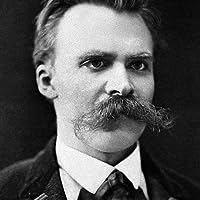
“I call it evil and misanthropic, all this teaching about the one and the perfect and the unmoved and the sufficient and the intransitory.
All that is intransitory – that is but an image!14 And the poets lie too much.
But the best images and parables should speak of time and becoming: they should be a eulogy and a justification of all transitoriness.
Creation – that is the great redemption from suffering, and life’s easement. But that the creator may exist, that itself requires suffering and much transformation.”
― Thus Spoke Zarathustra
All that is intransitory – that is but an image!14 And the poets lie too much.
But the best images and parables should speak of time and becoming: they should be a eulogy and a justification of all transitoriness.
Creation – that is the great redemption from suffering, and life’s easement. But that the creator may exist, that itself requires suffering and much transformation.”
― Thus Spoke Zarathustra
All Quotes
|
My Quotes
|
Add A Quote
Browse By Tag
- Love Quotes 97.5k
- Life Quotes 76k
- Inspirational Quotes 73k
- Humor Quotes 44k
- Philosophy Quotes 29.5k
- Inspirational Quotes Quotes 27k
- God Quotes 26k
- Truth Quotes 23.5k
- Wisdom Quotes 23.5k
- Romance Quotes 23k
- Poetry Quotes 22k
- Death Quotes 20k
- Happiness Quotes 18.5k
- Life Lessons Quotes 18.5k
- Hope Quotes 18k
- Faith Quotes 18k
- Quotes Quotes 16.5k
- Inspiration Quotes 16.5k
- Spirituality Quotes 15k
- Religion Quotes 15k
- Motivational Quotes 15k
- Writing Quotes 15k
- Relationships Quotes 14.5k
- Life Quotes Quotes 14k
- Love Quotes Quotes 14k
- Success Quotes 13.5k
- Time Quotes 12.5k
- Motivation Quotes 12k
- Science Quotes 11.5k
- Motivational Quotes Quotes 11.5k

